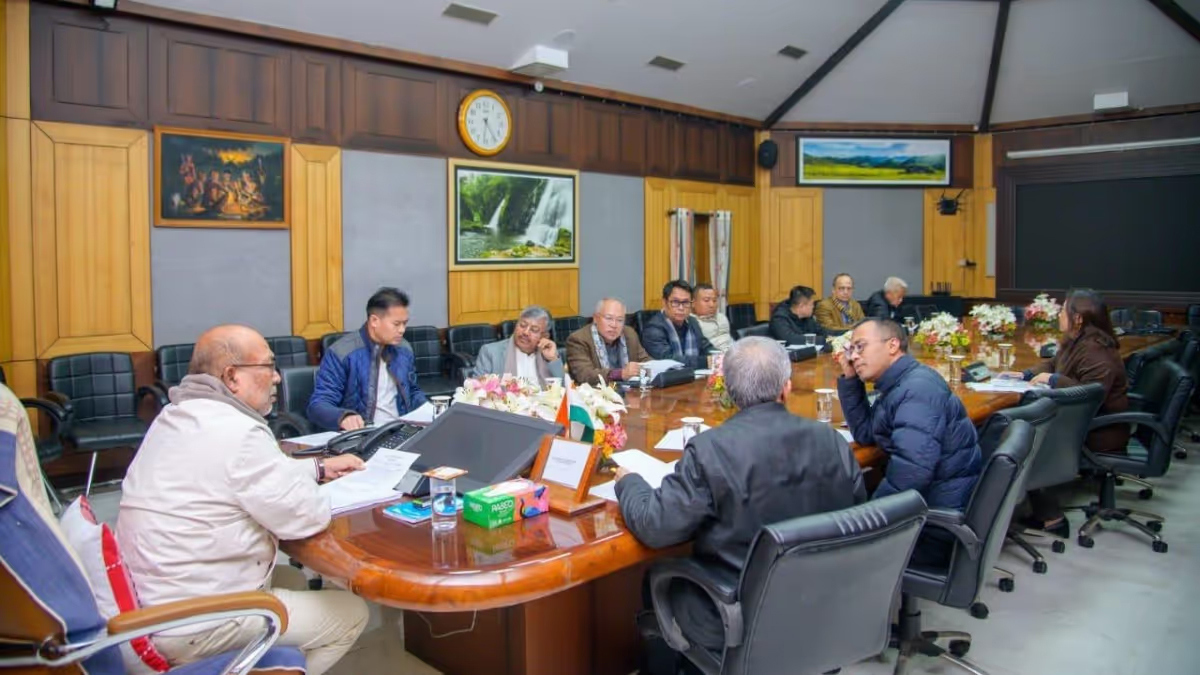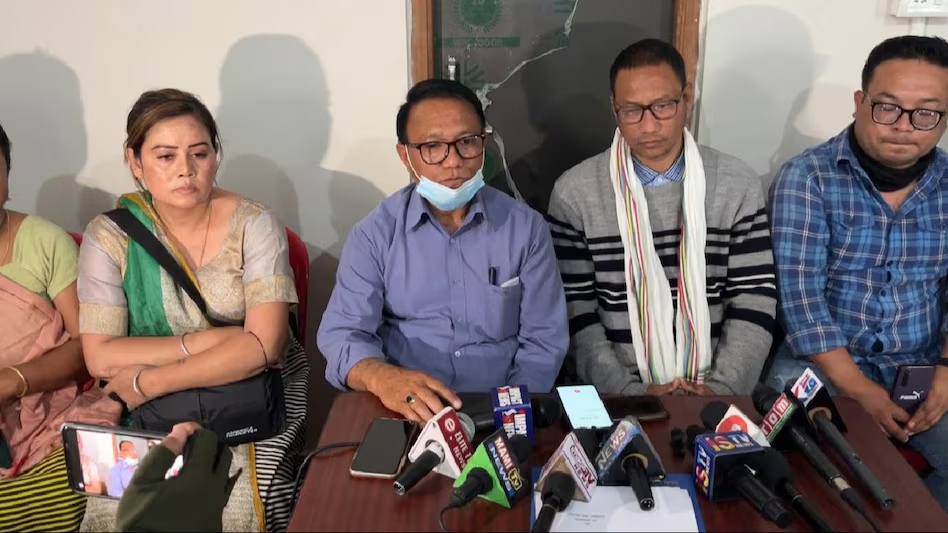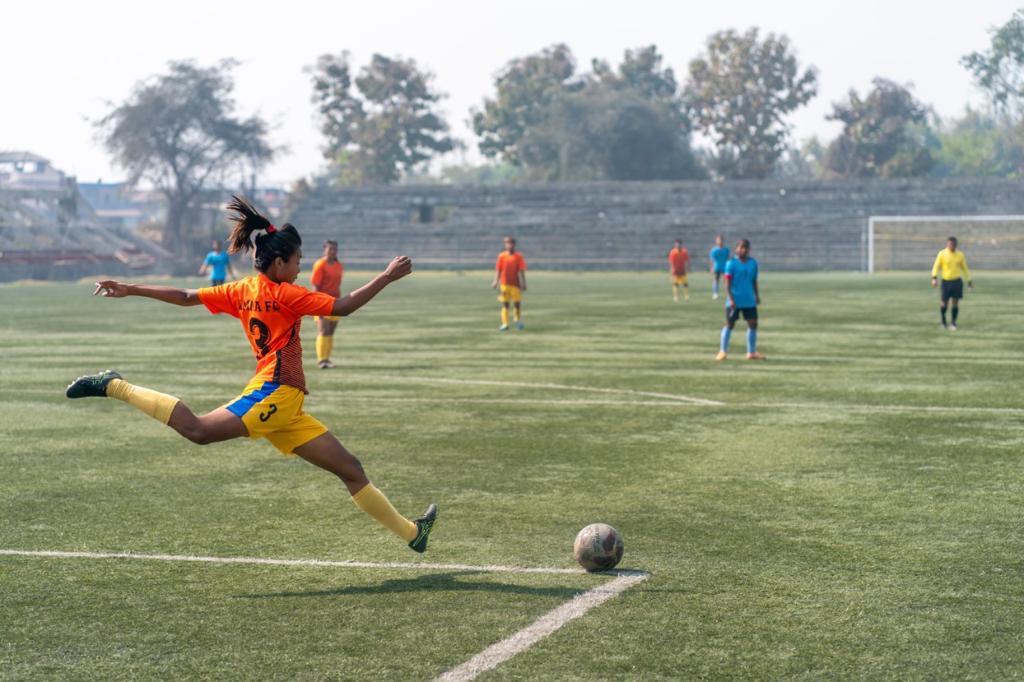Upon completion, the Imphal Ring Road project promises to usher in a new era of urban mobility, characterized by efficiency, sustainability, and inclusivity. By reducing traffic congestion, enhancing connectivity, and promoting environmental stewardship
 KRC TIMES Manipur Bureau
KRC TIMES Manipur Bureau
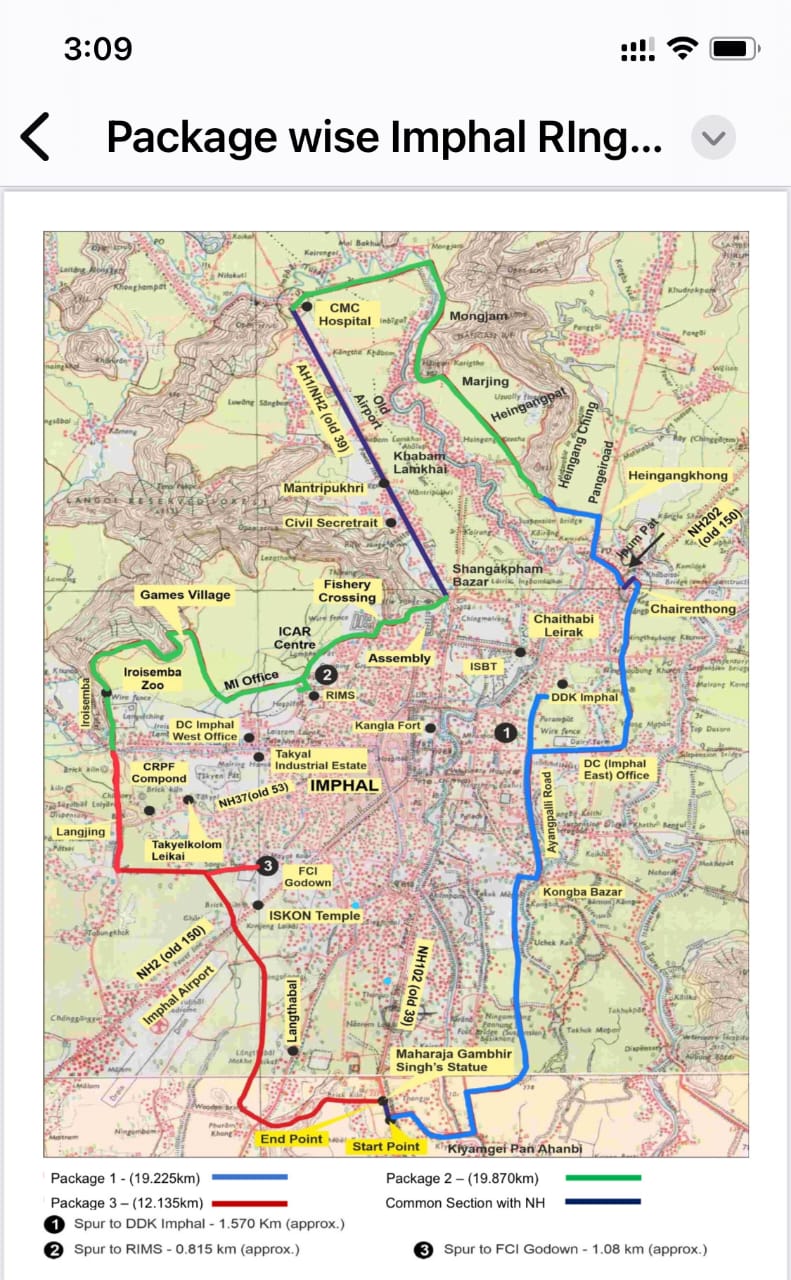
Waari Singbul Network
In a significant move towards sustainable urban transport solutions, the Imphal Ring Road project is gearing up to introduce a fleet of women-operated e-buses and e-rickshaws. Spearheaded by Yumnam Joykumar Singh, Project Director cum Chief Engineer of Externally Added Projects (EAP) at the Public Works Department (PWD) in Manipur, this initiative aims to tackle the persistent traffic congestion plaguing Imphal City.
With construction set to commence next month and completion targeted within 28 months, the project is poised to transform transportation dynamics in the state.
Funded by the Asian Development Bank (ADB) to the tune of Rs. 1760 crore, the project is a beacon of innovation and inclusivity. It seeks to deploy 20 e-buses and 52 e-rickshaws, operated exclusively by women.
This paradigm shift in transportation will not only address traffic congestion but also empower women by providing employment opportunities and fostering gender equality. The vehicles are to be operated under a Public Private Partnership (PPP) model, with an emphasis on prioritizing women-headed households in the project-affected areas.
To ensure seamless operations, rigorous training programs will be provided to the selected women operators, equipping them with the necessary skills to navigate the urban landscape.
The Imphal Ring Road project encompasses a length of 51.23 km, strategically covering portions of the Imphal East and Imphal West districts. As construction gears up, compensation disbursement for affected landowners and structures is well underway.
A substantial amount of Rs. 110 crore has been allocated for Imphal East, with an additional Rs. 69 crores earmarked for Imphal West. This concerted effort underscores the project’s commitment to fair and equitable development.
Divided into three phases, the construction will progress systematically. Package 1, spanning 19.225 km, will mark the project’s initial phase. Awarded to AKELIK Group and Keystone Infra Private Limited (KSIPL), this segment will traverse key areas in the Imphal East district, culminating at the mouth of the Heingang Ching.
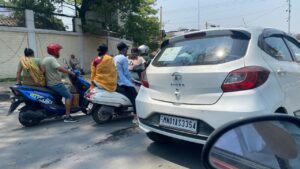
Beginning at Kyamgei Pal Ahanbi in Imphal East district, situated just east of NH102 (formerly NH39) near the Maharaja Gambhir Singh statue, next to Manipur University, the ring road will traverse through Canchipur, then continues to Bashikhong, Uchekon, Kongba Bazar, Ayangpalli Road, and Porompat Crossing. From this point, a 1.570 km spur road will be constructed, extending past the JNIMS road and leading up to Doordarshan Kendra Imphal. Returning to Porompat Crossing, the road proceeds towards DC Imphal East Road, passing through Chairenthong and Kairang Muslim Village, finally reaching the mouth of the Heingang Ching, marking the conclusion of Package 1.
Package 2 commences from the mouth of Heingang Ching, proceeding through Heingangpat, Mongjam village, the northern side of CMC hospital in Koirengei, and then connecting with NH102 for a 6 km stretch up to Sangngakpham Bazar. It then continues past prominent landmarks such as the Thangmeiband Capitol Project, Manipur Pony Breeding Farm in Thangmeiband, Fishery Crossing, and the Minor Irrigation (MI) office in Lamphel. A 0.815 km spur will extend from the MI office line to the gate of RIMS hospital. From the MI office line, the route heads towards Kombirei Road, Game Village Langol, Iroisemba Road, and Uripok Kangchup Road, reaching Langjing in Imphal West district, marking the endpoint of Package 2.
Starting from Langjing near the CRPF Campus, Package 3 intersects NH37 (formerly 53), leading to Tabungkhok. Additionally, a 1.08 km spur from Tabungkhok line will extend to the FCI Godown. Continuing from the Tabungkhok line, the route passes through Tera Saddokpam village, HRD school crosses NH2 (formerly 150), and proceeds along the northern wall of the Airport, Langthabal village, MU South wall, and concludes near the Gambhir Singh statue in Canchipur, marking the endpoint of Package 3.
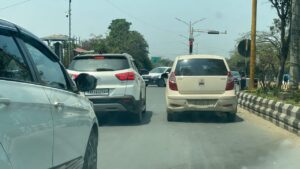
Packages 2 and 3 are to be managed by VENSAR and GKC.
Beyond infrastructure development, the Imphal Ring Road project embraces a holistic approach towards environmental and social sustainability. Two biodiversity parks with jogging tracts, nestled in Heingangching and Khonghampat, will serve as havens for local flora and fauna, promoting biodiversity conservation.
Additionally, rejuvenation efforts for 10 water bodies, including the iconic Ipum Pat, underlines the project’s commitment to environmental stewardship. These initiatives align with international standards, ensuring compliance with environmental laws and safeguarding the region’s natural heritage.
As the project unfolds, community engagement and empowerment remain integral pillars of its success. A robust grievance redressal mechanism, comprising both project-level and state-level committees, has been established to address concerns and foster transparency. Stakeholder participation, including input from civil society bodies, is actively encouraged, fostering a sense of ownership and accountability within the community.
Upon completion, the Imphal Ring Road project promises to usher in a new era of urban mobility, characterized by efficiency, sustainability, and inclusivity. By reducing traffic congestion, enhancing connectivity, and promoting environmental stewardship, the project not only addresses immediate infrastructure needs but also lays the foundation for long-term prosperity.
As the wheels of progress set in motion, Imphal City stands poised for transformation, with the Imphal Ring Road leading the charge towards a brighter, more sustainable future.

Speaking on the upcoming Imphal Ring Road initiative, David Elangbam, the director of Manipur’s Transport Department, expressed dismay over the flagrant disregard for motor vehicle regulations in Manipur, particularly within Imphal city. He attributed the city’s traffic congestion not to a surge in vehicle numbers, but to systemic failures. Elangbam disclosed that 1,734 motor vehicles had been registered this year, with a total of 564,873 registered over the past five years. Emphasizing the necessity for a comprehensive transport policy, he asserted that the state requires a solution capable of tackling all transportation issues effectively.


